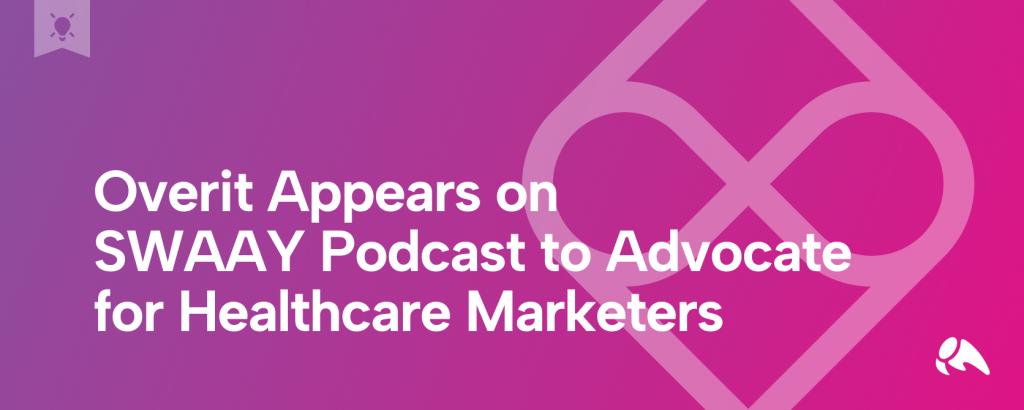
Most brands realize the importance of interacting with consumers online, but some may be surprised to discover the value of observing their audience in their natural (digital) environment. Remember when your parents taught you the importance of listening to others? The same ideology applies to brands. Sometimes, we get so wound up and excited about what we’re doing, that we forget to take time to listen to the surrounding conversations.
In the digital landscape, one way to observe your audience is through online forums and chat rooms. The cool thing about them is that they’re user-to-user, peer-to-peer. And they’re anonymous. It’s unlike social media where (for better, or worse) you’re tied to your “IRL” identity and your friends, family and coworkers. Forums and chats let users escape those confines and share information around a specific topic or interest.
Check Into A Room
Facebook recently rolled out a new app that takes us back in time to the chatroom days. Rooms, as it’s called, allows individuals (whether they have a Facebook or not) to anonymously join chat rooms relating to specific interests or hobbies, such as backpacking, craft beer, startups and cats.
For me, the first room I joined was “Backpacking Diaries,” with a recommendation from the app.

It’s a decently-sized group, with a purpose of sharing photos and tidbits of information about places that are off the beaten tourist path. As with all rooms, users select a nickname for their room, and from there they can post text, photos and even video. Other members in the room can then like or reply to their posts. The creator of the room can choose the color scheme, cover photo, and can moderate who can join. They can even customize the “like” button with a different emoji and text. In the backpacking group, the like button says “OMW” (for On My Way) and instead of a thumbs up, the emoji is the man running in the red shirt.
The way users are supposed to find and enter rooms is nearly as intriguing as the app itself. Instead of there being a “join now” button, or a search tool, users must screenshot QR codes of “invites” to their rooms of choice. The app starts you off with a few recommended rooms, but beyond that, it’s all on you and organic search to find these invites, or create your own room and distribute invitations (as photo posts) for others to screen-shot. Rooms is also iOS-only for now, unfortunately, but Android and desktop are said to be in the works.
In his recent post to Medium, Josh Miller, the Facebook product manager, said that the lack of seamless discovery options was an intended feature, not a bug. Mimicking the style of early Internet communities where users had to tell the search engine exactly where they wanted to go, Rooms encourages users to share invitations around the Internet and on various apps and social networks like Instagram, Facebook and Twitter with relevant #facebookrooms tags. People are forging their own path through the network as they begin to figure it out. Facebook doesn’t have an official Rooms account for Twitter or Instagram, but someone set them up as a way to share rooms in one place, on an account that other users would likely search for.

All of these methods may contribute to a surge in organic growth similar to forums, message boards and blogs in the “early days” of the web. As it grows, finding rooms will likely become much easier. There’s already a room called Rooms, where people can freely post invitations to their rooms. Let’s ruminate on that.
So yes, it’s a pretty neat concept, but what does it mean for your business?
Gaining Organic Insight
As a brand, the best thing you can do here is listen in. Don’t send in your troops, flooding the forums with fake users raving about how great your product or business is. This app is still in its infancy, and real conversations are happening on a variety of topics and interests, on a small, intimate level. Asking the group genuine questions is one thing, but making a sales pitch is another. Find rooms that are relevant to your niche, and see what people are chatting about.
- What problems are they facing?
- What kinds of experiences are share-worthy for them?
- What would make their lives better or easier?
This is the kind of information you can uncover from interacting with Rooms, and it’s information you can use to inform your marketing efforts on other channels where your audience resides. Perhaps you’re a crafting brand that sells yarn and inspires DIY projects. You might want to tune into the Knitting room and see what users are working on, and what kinds of questions they have about their projects. These questions and pain points are where good content comes from.
How Might This Evolve?
As it grows, and more users begin engaging, it’s likely that there will be opportunities to connect brand advocates with relevant rooms. But tread lightly, community forums can smell bogus from a mile away. There’s a reason why Reddit doesn’t usually have a place in a marketers toolbox.
In time, you might consider creating a room for fans to gather in if you think your brand fits the bill. It’s a visual medium, so it could ideally work for lifestyle brands, especially those who are seeing success on Instagram and Pinterest. The really nice part, is it’s a channel where users go to focus on a particular interest. You aren’t buried in the newsfeed under updates from their best friends and family members having babies. They came to the beer room to talk about beer. As long as they’re online in the room, they’re zeroed in on that topic.
While it’s a bit soon to predict the trajectory of Rooms and how brands will be able to engage as it evolves, you can certainly begin by listening, and gaining a better understanding of your audience while they interact naturally and anonymously. It can be particularly useful to small businesses and startups who may not have their audience or customers established yet, and may lack the resources to pay for audience intelligence. Would I dump my entire marketing budget into forums and chatrooms? Nope. But if my brand was struggling to understand consumer’s thoughts on a topic, or what kinds of resources would benefit them, I would certainly consider tuning in.







